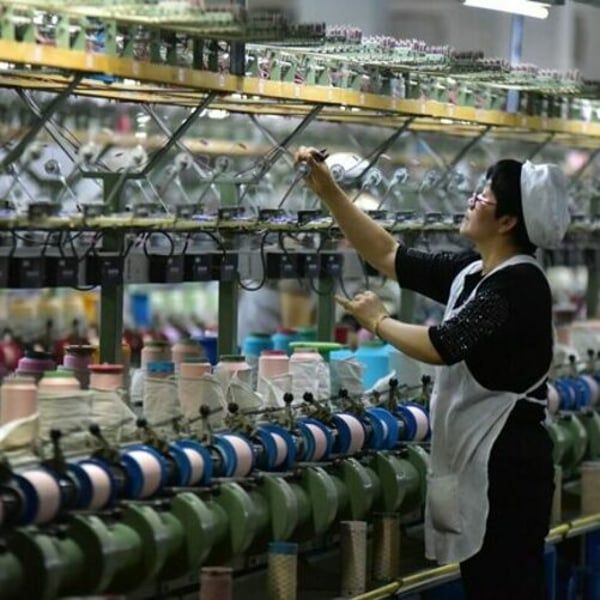By
Bloomberg
Published
April 22, 2025
In any conflict, you have to recruit allies. Unfortunately for Donald Trump, that is also true for his commercial war. Some of his advisors understand this: the Treasury Secretary, Scott Besent, intends to use the “90 -day pause” that he won from the president to gather old friends and surround China.
Since he trusts Washington much less in Asia these days, that could be a great request for Besent and his colleagues. But we should not rule out the effort out of control. Many countries would be happy to see that the current structure of Trump's rates, disproportionately addressed to China, continues indefinitely.
Beijing knows it, and that is why he has begun his own allied recruitment effort. President Xi Jinping visited Vietnam, Cambodia and Malaysia last week, and his hosts did everything possible to give him an enthusiastic welcome.
However, the fact is that the resentment of China's domain of trade of goods and manufacturing supply is as powerful in much of Asia as in the United States. Perhaps more powerful, since the losses of employment caused by Chinese spill are a continuous and severe problem. Indonesia may have lost up to 80,000 jobs in the textile sector last year, with more to come.
The real cost for countries in development of China's commercial practices is even deeper, although it is less visible. It is possible to count the work that is being lost, but much more difficult to count the work that is not created. After years of trying to value Beijing's firm height chains, political leaders in Emerging Asia are worried and angry. They fear that old development tools, lower salaries and industrial incentives cannot work against a commercial superpower determined to see their resources to maintain investment -based growth.
Some economies, such as Vietnam, have certainly prospered by integrating more closely with China. But its leaders know it has a cost. No one considers it as the type of benign relationship that could be built with US companies, investors and markets.
It is completely possible to corner these countries in a coalition aimed at interrupting a commercial paradigm focused on China. And yes, differential tariffs, which penalize China more, could be part of that effort.
But some other things must be established. A great lesson in recent years is that the attitudes towards China's decoupling in Asia vary widely. Some countries, India, especially are eager to isolate Beijing as much as possible, and have gone beyond the majority in the West to control Chinese investment and reduce commercial links.
Others, such as Indonesia, could be willing to join any effort to remodel the supply chains that give them an opportunity for industrialization, but will need an incentive that exceeds the promises and threats that Beijing could deploy. And there are others, such as Cambodia, which are perhaps too integrated with China now to be reliable partners for the United States.
All in Asia already wanted to reduce China's footprint in the manufacturing sector. Now, as markets in the West close to Chinese products, producers and policy formulators here are terrified that Chinese overcapacity will flood their local markets with cheap imports.
However, the incentives of these nations are not perfectly aligned. They compete with each other to replace Chinese producers in specific sectors, for example. And some would also want to be those who “deceive” any final agreement by sending Chinese products as much as they can, or through the set of low value goods prepared in factories in the continent.
Some more will be needed as a glue to maintain these various interests. If help and trade are out of the table, it is not clear what the United States has to offer. Trump believes that access to American consumers is sufficient carrot, but for the countries enclosed in competition with each other and with Beijing, the profits of that trade may seem too uncertain. After all, if they are asked to eliminate China from their supply chains, it could increase their costs, perhaps too much to enter the US market.
A more fair trade coalition will need boutique strategies designed for each of these countries. Even if Besent can somehow solve that, he needs his boss to play. Any association will require Trump's will to haggle details and respects the autonomy of these countries.
Trump has promised to negotiate with “more than 75” countries that, according to him, approached the United States. Any negotiation of this type will need to recognize that most of its Asian partners are not willing to disappoint the United States. Such heart change seems unlikely: after Xi's visit to Vietnam, the president said that the purpose of the meeting was “trying to find out, how did we force the United States of America?”
The United States will only benefit from a commercial coalition that excludes China, ensures that national regulations of the United States and higher standards do not make their producers not competitive and create new supply chains that include US workers. What Trump really needs to achieve his aims is an inclusive, equitable and high quality association with allies throughout the Pacific Ocean. A trans-pacific association, so to speak.












